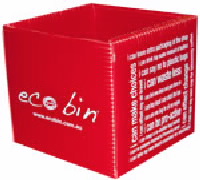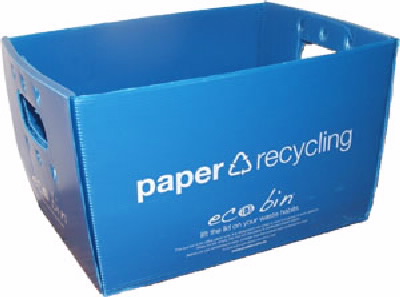TropEco for Staff and Students Recycling
Recycling
- Future Students
- JCU Global Experience
- International Students
- Open Day
- How to apply
- Pathways to university
- Virtual Open Day
- Living on Campus
- Courses
- Publications
- Scholarships
- Parents and Partners
- JCU Heroes Programs
- Aboriginal and Torres Strait Islander in Marine Science
- Elite Athletes
- Defence
- Current Students
- New students
- JCU Orientation
- LearnJCU
- Placements
- CEE
- Unicare Centre and Unicampus Kids
- Graduation
- Off-Campus Students
- JCU Job Ready
- Safety and Wellbeing
- JCU Prizes
- Professional Experience Placement
- Employability Edge
- Art of Academic Writing
- Art of Academic Editing
- Careers and Employability
- Student Equity and Wellbeing
- Career Ready Plan
- Careers at JCU
- Partners and Community
- JCU-CSIRO Partnership
- Alumni
- About JCU
- Reputation and Experience
- Chancellery
- Governance
- Celebrating 50 Years
- Academy
- Indigenous Engagement
- Education Division
- Graduate Research School
- Research and Teaching
- Research Division
- Research and Innovation Services
- CASE
- College of Business, Law and Governance
- College of Healthcare Sciences
- College of Medicine and Dentistry
- College of Science and Engineering
- CPHMVS
- Anthropological Laboratory for Tropical Audiovisual Research (ALTAR)
- Anton Breinl Research Centre
- Agriculture Technology and Adoption Centre (AgTAC)
- Advanced Analytical Centre
- AMHHEC
- Aquaculture Solutions
- AusAsian Mental Health Research Group
- ARCSTA
- Area 61
- Lions Marine Research Trust
- Australian Tropical Herbarium
- Australian Quantum & Classical Transport Physics Group
- Boating and Diving
- Clinical Psychedelic Research Lab
- Centre for Tropical Biosecurity
- Centre for Tropical Bioinformatics and Molecular Biology
- CITBA
- CMT
- Centre for Disaster Solutions
- CSTFA
- Cyclone Testing Station
- The Centre for Disaster Studies
- Daintree Rainforest Observatory
- Fletcherview
- JCU Eduquarium
- JCU Turtle Health Research
- Language and Culture Research Centre
- MARF
- Orpheus
- TESS
- JCU Ideas Lab
- TARL
- eResearch
- Indigenous Education and Research Centre
- Estate
- Work Health and Safety
- Staff
- Discover Nature at JCU
- Cyber Security Hub
- Association of Australian University Secretaries
- Services and Resources Division
- Environmental Research Complex [ERC]
- Foundation for Australian Literary Studies
- Gender Equity Action and Research
- Give to JCU
- Indigenous Legal Needs Project
- Inherent Requirements
- IsoTropics Geochemistry Lab
- IT Services
- JCU Webinars
- JCU Events
- JCU Motorsports
- JCU Sport
- Library
- Mabo Decision: 30 years on
- Marine Geophysics Laboratory
- Office of the Vice Chancellor and President
- Outstanding Alumni
- Pharmacy Full Scope
- Planning for your future
- Policy
- PAHL
- Queensland Research Centre for Peripheral Vascular Disease
- Rapid Assessment Unit
- RDIM
- Researcher Development Portal
- Roderick Centre for Australian Literature and Creative Writing
- Contextual Science for Tropical Coastal Ecosystems
- State of the Tropics
- Strategic Procurement
- Student profiles
- SWIRLnet
- TREAD
- TropEco for Staff and Students
- TQ Maths Hub
- TUDLab
- VAVS Home
- WHOCC for Vector-borne & NTDs
- Media
- Copyright and Terms of Use
- Australian Institute of Tropical Health & Medicine
- Pay review
JCU is committed to minimising waste to landfill and maximising reuse and recycling where possible.
We have developed a range of resources to help students and staff better understand how they can manage their own waste on campus.
General waste
JCU is fighting a War on Waste campaign to reduce waste to landfill and increase recycling rates. Check out the War on Waste webpage for more info.
The JCU Waste and Recycling Procedures below provide a comprehensive and easy to navigate guide on waste management at JCU.
Organic waste
JCU implemented the Ecobin system as a coordinated, easy to use and visually appealing way for staff to reduce waste to landfill from our offices.
Every year JCU sends nearly 1,000 tonnes of waste to landfill, with office paper and other recyclables making up a significant proportion of this. The Ecobin system encourages staff to think about their waste and recycle their paper. Over 80% of office waste is made up of paper.
The Cairns Campus has moved entirely to Ecobins in their offices and Townsville is transitioning to the Ecobin system with over 2000 bins already distributed on the campus.
TropEco has a limited supply of these trendy office EcoBins available upon request.
All you need to do is swap your existing rubbish bin and you will receive a waste mini bin and desk side paper recycle bin.
If you would like Ecobins for your office please contact TropEco.


Who collects my bin?
The red mini waste bin will be collected by cleaning staff at the same frequency as your current desk side bin.
The paper bin needs to be emptied by you, into a paper recycle bin usually located near your communal printer.
JCU composts food scraps and organic materials from staff rooms, student kitchens and cafes, in the community garden on the Cairns campus and the ground swell facility on the Townsville campus.
The University's Bio-Regen and Groundswell systems on-campus turn food waste from accommodation and restaurant areas into compost. Green waste is also processed onsite for use as compost and mulch on campus and community gardens to improve plant and soil health.
For more information or to get involved in the program contact tropeco@jcu.edu.au
Specialist items
In these marked recycling bins located around each campus, you can recycle specific items that can not be recycled in yellow co-mingled recycle bins.
Furniture
The Warp It system is an online marketplace for internal furniture reuse at JCU. All staff can use the program to upload unwanted furniture and claim items in a simple to use web based application.
How does it work?
Unwanted furniture that is still functional is uploaded by the user to the Warp It site. If unwanted within the University (by the expiry date set by the staff member), the furniture can be donated to charity or other not-for-profit organisations subscribed to Warp It, or moved to storage within JCU where available.
This way we are keeping furniture from ending up in landfill.
How do I utilise the program?
Go to the JCU Warp It webpage and register. Once your registration has been approved you are then free to use the system.
Frequently asked questions
Q. Can paper towel be recycled in the yellow recycling bin?
A. No, the fibres are too poor quality – paper towel can be composted or put in a red landfill bin
Q. Can newspaper and magazines go into a blue paper bin?
A. Yes, they can be recycled with copy paper
Q. Will campus cafés give a discount off my coffee if I bring my own reusable cup?
A. Yes and no, each café is different so be sure to ask! However, they all accept reusable cups.
Q. Can a disposable coffee cup be put in a yellow recycling bin or red landfill bin?
A. A red landfill bin only
Q. Can food, liquids, clothing and soft plastic go into a yellow recycling bin?
A. No, keep these out of recycling bins
Q. Are green compost bins for food scraps, tea bags, coffee grounds and paper towel?
A. Yes! Keep out oil and bones
Q. Can I put batteries in the red landfill bin?
A. No, they can leak, put them in a battery bin
